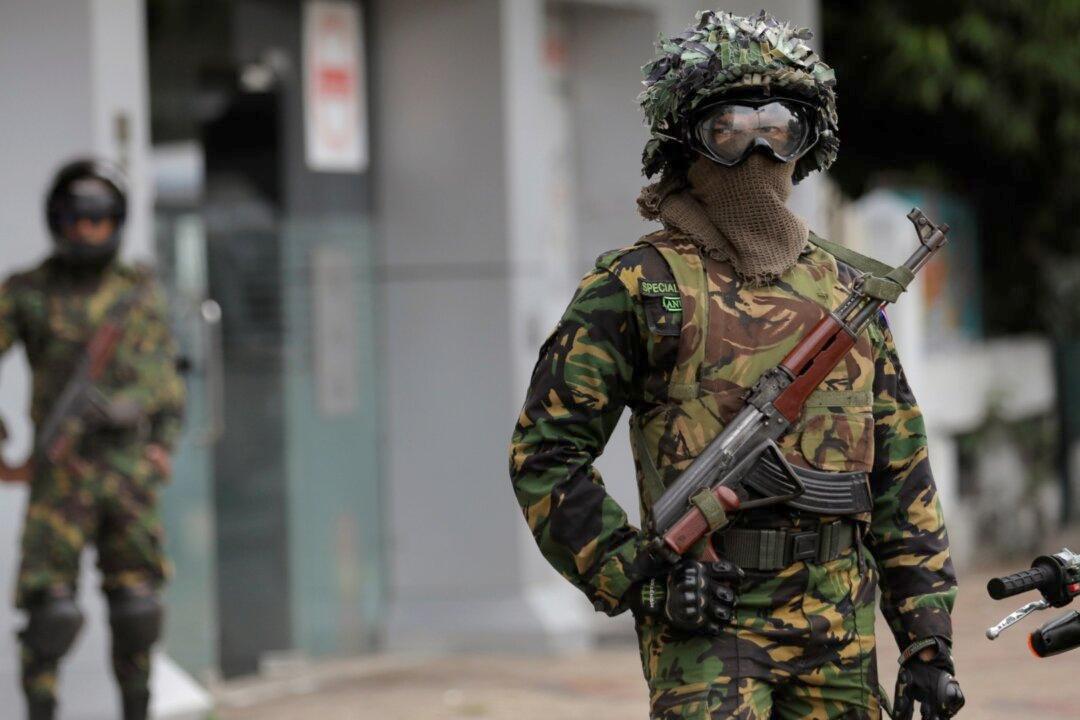COLOMBO—Sri Lankan police are trying to track down 140 people believed linked to the ISIS terrorist group, which claimed responsibility for the Easter Sunday suicide bombings that killed 253, as shooting erupted in the east during a raid.
Muslims in Sri Lanka were urged to pray at home after the State Intelligence Services warned of possible car bomb attacks, amid fears of retaliatory violence.





